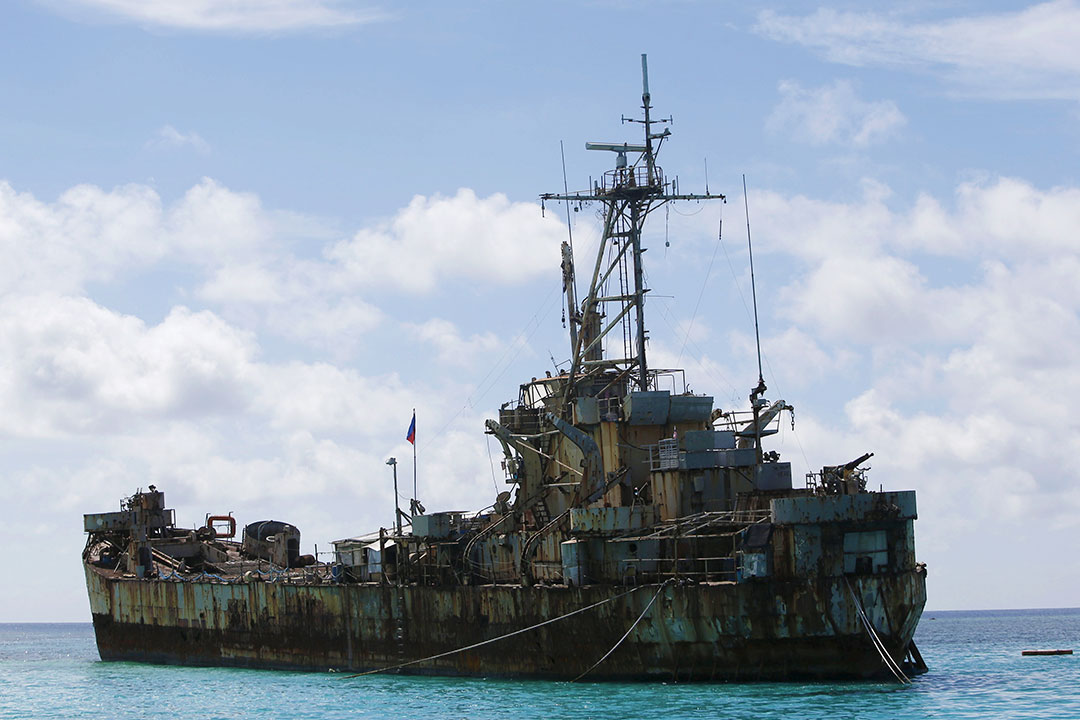Senate to boost defense budget next year amid growing tensions with China

By John Victor D. Ordoñez, Reporter
THE SENATE is likely to boost funding for the armed forces and the Philippine Coast Guard next year to beef up Manila’s defenses amid growing tensions with China, a senator said on Thursday.
This is consistent with the budget increase for defense agencies that the chamber pushed this year, Senate President Pro-Tempore Jose “Jinggoy” P. Estrada, Jr. told a news briefing.
“We must also take a close look at the Philippine Rise and not just the South China Sea since this area has huge potential as a source of oil and gas that may lower our dependence on fossil fuels,” he said in mixed English and Filipino.
Defense agencies will get P256.1 billion under the Budget department’s P6.352-trillion proposed national budget for next year.
The Philippine Army, Air Force and Navy will get P204.4 billion, while P50 billion will go to modernization efforts of the Armed Forces of the Philippines, according to a summary of the Budget department’s national expenditure plan.
Congress earlier passed a bill that seeks to boost the country’s defense program through investments in local defense equipment and manufacturing amid tensions with China.
It allows the Defense department to develop a self-reliant defense posture program that will encourage manufacturers to produce weapons and defense systems in the country for local use and exports. It will give the agency P1 billion in funding.
Mr. Estrada said it is crucial for the Philippines to keep its alliances with countries like the United States, Japan and Australia to deter China’s aggression in the waterway.
“The US, Japan and Australia don’t have interests in the West Philippine Sea,” he said, referring to areas of the South China Sea within the Philippines’ exclusive economic zone (EEZ). “They are allies of the Philippines that are ready to help our country in case the situation worsens.”
The Chinese Embassy in Manila on Wednesday said the US should not interfere in the South China Sea dispute.
In a statement, it urged the Philippines and the US to stop “inflammatory remarks” that could raise tensions in the waterway, after trading blame with Manila for a collision involving their coast guard vessels on. Aug. 19.
Philippine lawmakers have passed a bill that seeks to boost the Philippines’ claim in the South China Sea by marking the boundaries of its maritime domain.
It seeks to outline the country’s territorial and sovereign boundaries as it tries to enforce a 2016 Permanent Court of Arbitration ruling favoring its claim over contested waters in the South China Sea.
The US earlier condemned what it called “reckless maneuvers” by the Chinese Coast Guard when it collided with two Philippine vessels at Sabina Shoal.
BRP Cape Engaño was sailing 23 nautical miles southeast of Sabina Shoal at 3:24 a.m. on Monday when a Chinese Coast Guard vessel performed “aggressive maneuvers,” the Philippine military said.
The second incident occurred at 3:40 a.m. when BRP Bagacay was “rammed twice” on its port and starboard sides by another Chinese Coast Guard vessel, sustaining a minor structural damage.
In a statement on Aug. 19, principal deputy spokesperson of the US State Department Vedant Patel reaffirmed Washington’s Mutual Defense Treaty with Manila, which extends to armed attacks on the Philippine armed forces, coast guard vessels or aircraft in the waterway.
“The US and certain countries are not parties to the South China Sea issue and have no right to interfere in maritime matters between China and the Philippines,” the Chinese Embassy said.
China claims almost the entire South China Sea, including parts claimed by the Philippines, Brunei, Malaysia, Taiwan and Vietnam.
Portions of the waterway, where $3 trillion worth of trade passes yearly, are believed to be rich in oil and natural gas deposits, as well as fish stocks.
Earlier this month, the Philippines, Canada, US and Australia held joint military exercises in the South China Sea amid China’s increased military buildup in the waterway.
Washington, a treaty ally of the Philippines, has held similar exercises with other countries in the waterway, having carried out drills with Manila and Tokyo in June.
The four nations said they uphold the right to freedom of navigation and overflight in the South China Sea, adding that naval and air force units would operate together in Manila’s 200-nautical mile exclusive economic zone to improve cooperation and interoperability.



